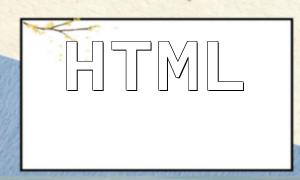In modern software development, code reusability is a critical concept. Rewriting similar or identical code not only wastes time and effort but also increases the difficulty of maintaining and modifying the code. To address this issue, PHP 5.4 introduced a new language construct called Trait.
A Trait is a special PHP structure that can be used by other classes and allows code to be shared between different classes. By using Traits, developers can encapsulate a set of related methods into a single Trait and apply it across multiple classes, achieving code reusability.
To help you better understand the usage of Traits, we will demonstrate its application through a simple example of a shopping cart functionality.
First, we create a Trait named CartTrait
The code above defines three methods: addToCart, getCartItems, and clearCart, which are responsible for adding items to the cart, retrieving the cart items, and clearing the cart, respectively.
Next, we create a Product class and apply the CartTrait to it in order to add shopping cart functionality:
class Product {
use CartTrait;
private $name;
public function __construct($name) {
$this->name = $name;
}
public function getName() {
return $this->name;
}
}
By using use CartTrait; in the Product class, we are bringing in the methods from the CartTrait and allowing the Product class to access and use them, thereby enabling shopping cart functionality.
Finally, we test the shopping cart functionality by creating Product objects and calling their methods:
$product1 = new Product("iPhone X");
$product2 = new Product("iPad Pro");
$cart = new Product("Shopping Cart");
$cart->addToCart($product1->getName());
$cart->addToCart($product2->getName());
$items = $cart->getCartItems();
echo "Items in the cart: ";
foreach ($items as $item) {
echo $item . " ";
}
$cart->clearCart();
This code first creates two Product objects and adds them to the cart using the addToCart method. It then retrieves the cart items using getCartItems and prints them out, followed by clearing the cart with clearCart.
As shown in the example, using Traits simplifies the structure and logic of the code, making it cleaner and easier to maintain. Traits allow developers to extract common functionality into a Trait and avoid writing duplicate code in multiple classes.
Beyond the simple example, Traits can be used in more complex code reuse scenarios. By using Traits, different business logic can be modularized and applied to multiple classes, greatly enhancing development efficiency and code quality.
The Trait feature introduced in PHP 5.4 is an incredibly useful tool that helps developers extract code logic into separate modules, improving code reusability, simplifying development, and enhancing maintainability. As developers, we should leverage Traits in our projects to optimize code structure and improve development efficiency.









